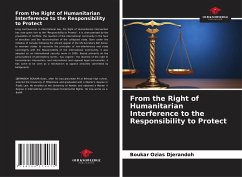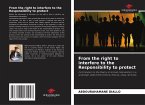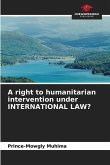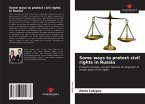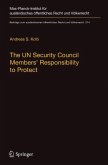Long controversial in international law, the Right of Humanitarian Intervention has now given rise to the "Responsibility to Protect". It is characterized by the prevention of conflicts, the reaction of the international community in the face of atrocities and the reconstruction of the collapsed state. Born under the initiative of Canada following the vibrant appeal of the UN Secretary Kofi Annan to member states to reconcile the principles of non-interference and state sovereignty with the Responsibility of the International Community, it was adopted as an international security norm in 2005. Based primarily on the jurisprudence of peremptory norms, "Jus cogens", the doctrine of the right to humanitarian intervention, and international and regional legal instruments, it has come to be seen as a mechanism to oppose atrocities committed by belligerents.
Bitte wählen Sie Ihr Anliegen aus.
Rechnungen
Retourenschein anfordern
Bestellstatus
Storno

